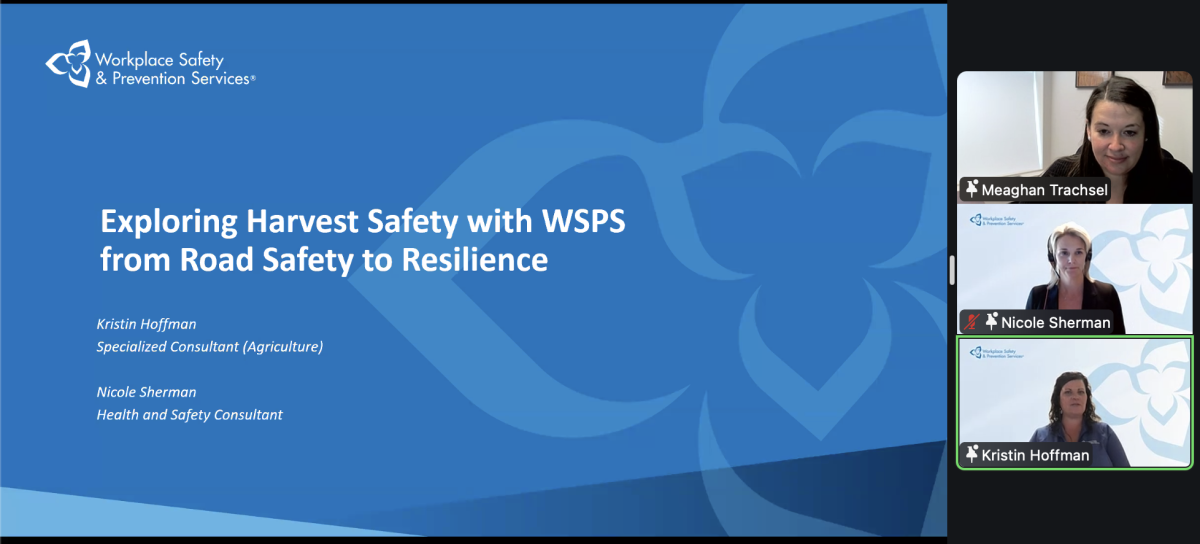Canada has signed on as a founding and funding member of a new worldwide research body devoted to cutting greenhouse gas (GHG) emissions in farming.
The government announced the move Wednesday in Copenhagen, Denmark, where a number of federal and provincial officials are attending the United Nations Climate Change Conference (COP15), which ends Friday.
Agriculture and Agri-Food Canada pledged an investment of up to $27 million toward what’s called the Global Research Alliance on Agricultural Greenhouse Gases.
“Scientists around the world are working to find new ways to reduce emissions and increase productivity and this alliance will serve to identify gaps in existing research and increase international collaboration,” Environment Minister Jim Prentice said in the government’s release.
Read Also

Exploring Harvest Safety
Kristin Hoffman of WSPS explains measures for increased farm safety around harvest season
“As part of the alliance, Canada will participate in world-class research with other countries and Canada’s farmers will gain access to international leading-edge research and technologies,” Agriculture Minister Gerry Ritz said.
“This will provide our farmers with new tools and practices that reduce their costs and allow them to take advantage of carbon trading systems.”
The alliance’s member countries are to collaborate on research projects and exchange knowledge on new research and practices for greenhouse gas mitigation in agriculture, the government said.
Areas of proposed research so far include management of livestock emissions, including research into new feeds and forages that can improve efficiency of feed digestion while reducing GHG emissions, feed requirements and costs.
The alliance also plans to look at carbon sequestration in agricultural landscapes, including the measurement, reporting and verification of soil organic carbon in response to changes in cropland management.
The group also expects to explore ways to increase efficiency of water and energy use in intensive irrigated cropping systems. Heavy use of irrigation on cropland “raises production costs and is directly related to increased GHG emissions,” the government said.
Other members so far include New Zealand, Australia, the U.S., Denmark, France, Germany, Chile, Ghana, Ireland, Japan, the U.K., Sweden, Switzerland, Uruguay and Vietnam.
“The agriculture sector has a unique relationship with the environment and the Global Research Alliance on Agricultural Greenhouse Gases will help the sector grow and profit as we continue to adapt to different climate conditions,” the government said.
“In addition to environmental benefits, reducing GHG emissions in agriculture brings direct economic benefits to the farm gate, including increased efficiency of livestock production and nutrient use, as well as more economical land use.”














